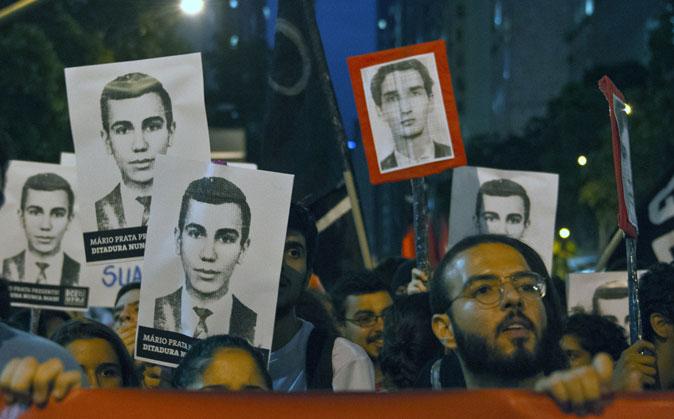A retired colonel was heard on March 25th by Brazil’s National Truth Commission to clarify how “political prisoners were tortured” and identify “who was alive when they arrived, who died and who is still missing, as well as the torturers” from Casa da Morte (“Death House”), an underground center for repression located in Petrópolis, Rio de Janeiro, during the country’s military regime. The Truth Commission has been investigating violations of human rights during the dictatorship (1964-1985), but many have criticized it as an underhanded instrument used by leftists to advance their agenda.
Let’s turn back the clock. Fifty years ago, a coup d’état in Brazil kicked off the military dictatorship. Its officers, acting in stark opposition to the law, committed torture, forged suicides and made hundreds of people go “missing.” The transition to civil government is guilty of favoring “slow, gradual, and secure redemocratization” over individual rights. The Brazilian Constitution of 1988, so called “Citizen’s Document,” was an instrument of that injustice.
It has a name: The amnesty law, law number 6,683 from 1970. The problem wasn’t in pardoning political prisoners – which is fair and noble – but in its quid pro quo: The government gave out pardons to the violent crimes of its own officers in a kind of “self-amnesty.”
Victims and their family members were denied any hope of one day seeing the aggressors convicted for brutal violations of rights – which, for them, was not just a piece of technical jargon, but real pain and suffering in the hands of men who obeyed the command of authority, this terrible instrument of validation and insensitivity, as shown by the famous experiment carried out by Stanley Milgram. Hope dies last, but the state’s pardon of its own is hope’s capital punishment.
Current international law has an exaggerated deference for “states’ sovereignty” (it doesn’t recognize the right of free secession, for instance), but fortunately it recognizes that states must respect basic human rights. The Brazilian state has accepted the jurisdiction of the Inter-American Court of Human Rights to judge reports of human rights violations.
In the case Gomes Lund and others (“Araguaia Guerilla”) vs. Brazil, the Brazilian state was accused for having pardoned the crimes of its agents, despite the “incompatibility of amnesties of grave violations of human rights with international law,” and was convicted. That is why it is a little unsettling when people who consider themselves “libertarians” criticize initiatives such as the National Truth Commission or the criminal prosecution of agents of the regime, as if they were issues only the far left could care about.
To ascertain what happened and punish crimes accordingly is libertarian. No state should have the right to waive punishment for its own crimes. How can it be fair that officers who work for a regime commit barbarian crimes and in the end go about their lives unscathed, because the government has decreed it was all fair game? Only adamant advocates of the state, who see it as a god on earth, would be able to think so.
Victims are victims — it doesn’t matter whether they are from one or another political affiliation. Their bloodshed must be vindicated. How can a state claim the victims don’t have the right to have their tormentors prosecuted? It is not possible to be a libertarian and believe that a professional criminal organization has the legitimacy to pardon the crimes of its agents just because it labels itself “the state.”
Clarifying crimes such as murder, mutilation and concealing of dead bodies is not a leftist maneuver — it’s basic human decency. You can’t be a libertarian if you don’t stand for it.
Republished from Center for a Stateless Society under Creative Commons License 3.0.
